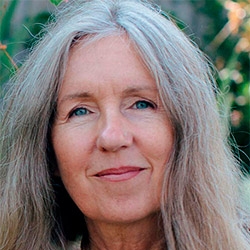

Search Results: needs
-
Trainer Tip: When you make a request of someone, you don't diminish your relationship; you enhance it. If you receive a "no" to your request, consider brainstorming a different strategy that would meet your needs. It isn’t a sign of weakness to clarify what you would like. It helps you commit to living a full and joyful life. Look for opportunities to clarify your requests.
-
Trainer Tip: When we match might with might, we create discord, frustration, and separation from other people. Instead, place aside your urge to be right or to win. Approach charged situations with a sincere desire to be honest, and to value everyone’s needs including your own. The way you show up is a valuable asset. You may not get what you asked for but you can increase your chances of meeting your needs for integrity, and more.
-
Trainer Tip: Notice when you're tempted to wield physical, emotional, and intellectual power to get your children to do what you want. This coercion or force may bring short term ease, but long term it can be counterproductive. Ask yourself “What do I want my child to do?” and “What do I want my child’s reasons for doing it to be?”. Then consider ways to help them connect to their intrinsic motivation for doing it.
-
The regeneration movement employs practices for healing our planet from damage, and boosting Earth sustainability. Environmental and social degradation is deeply connected -- as it comes from the same extractive, exploitive mindset of economic and related systems. Connecting with universal consciousness and needs underlying conflicts, we connect with commonality of all planetary life. This helps tap new abilities for working together. This can contain power to regenerate and heal ourselves and Earth.
-
Trainer Tip: Mindfulness, focusing on what's happening now, is the foundation of Compassionate Communication. The more present we are, the greater the chance we will be aware of our needs and meet them, thus the greater opportunity for joy. Connect to your feelings and needs at least four times today. Notice how differently you conduct your day when you are mindful.
-
Trainer Tip: Do you sometimes feel lonely and disconnected from others? If so, look at how you may be participating in supporting that outcome and what you can do differently. For instance, if you want support or connection - but prioritize looking composed no matter how sad, hurt or angry you feel, you may shield yourself from authentically and vulnerably asking those things. Instead, make those requests.
-
- Share NVC in a way that keeps your group engaged
- Walk away with practical facilitation tips and 5 session outlines
- Know how to respond to nay-sayers
- Learn how to promote your work
-
This article outlines a four-part transformation process to help us recognize what's giving rise to our suffering and resentment -- and transform it into more freedom, creativity, and choice.
-
-
Exploring how blame hides our inner voice and fuels pain through self-judgment and stories.
-
When we take a leap in life and put our hearts out into the world in new or bigger ways—sharing a song, dance, or poem, writing a book, competing at a sporting event, giving a speech, and so on—there is greater potential for aliveness but also for shame and pain
-
How do we talk to ourselves and with others about polarizing topics in a way that's supportive? Seek to understand and be understood rather than press for agreement. Bring mindfulness into the conversation. Slow down and use structure to support everyone. Release knowing the solutions, answers or outcomes. Keep focus on shared universal needs. From this place we can say what's in our hearts and minds, and trust the process.
-
- Learn tips and strategies to ensure ALL voices are heard
- Grow your capacity to name and address power dynamics
- See how prior assumptions and perspectives impact how groups work together
- Explore facilitation components using a caring for all, power-with lens
-
Greetings dear readers of the Growing Roots Newsletter! Mary Mackenzie invited me to be a guest writer for this issue to which I happily agreed. She also shared that her messages are typically more personal in nature, something I always appreciate in a newsletter. The challenge for me then is to...
-
- Learn tips and strategies to ensure ALL voices are heard
- Grow your capacity to name and address power dynamics
- See how prior assumptions and perspectives impact how groups work together
- Explore facilitation components using a caring for all, power-with lens
-
Roxy Manning's 2023, 4 session course, will help you
- Explore several essential components of facilitation using a caring for all, power-with lens
- Know how to identify and gather together the people who need to be in the room
- Learn tips and strategies for ensuring all voices are heard
- Grow your capacity to name and address power dynamics and unconscious bias that impacts group members’ experience
-
Hello,
I’m Iris Bawidamann. When Mary reached out to me asking if I’d write this letter, I sat for some time meditating on what is alive for me and what I want to share with you… This is what surfaced for me… Fear sits with me—on my shoulders, in my chest. A familiar presence I consciously keep in check so it doesn’t take over. Watching global politics, conflicts, and rising polarization, I often feel overwhelmed. The world is shifting.
-
Dear friends,
This morning, I woke up thinking about a poignant moment from a few years ago. My wife, Kim, and I were driving down a busy 4-lane road, and we were in a hurry to get somewhere important. Then we saw a mama duck with many small ducklings trying to get across the street. Kim pulled over, and we both hopped out to stop 4 lanes of traffic so Mama Duck could get across with all her ducklings. The last one had some kind of injury, so it took a very, very long time for all of them to make it across.
-
Trainer Tip: Persistence is key in NVC. A small shift in approach can make a big difference.
-

Quick Links
Subscription Preferences
Stay In Touch!
Looking for ways to keep up with NVC Academy news, get special offers, free resources, or words of inspiration? Here are five ways to stay engaged:

















